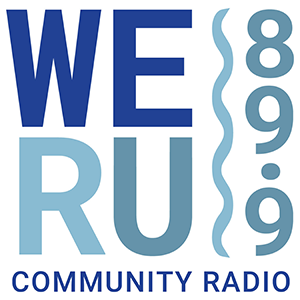Producer/Host: Steve Wessler
Discussion about immigration with two people who came to the USA seeking asylum who work on social justice and human rights in Lewiston, ME.
Mohamed Ali Ibrahim was born in Djibouti. Djibouti is on the horn of Africa. He worked as a translator for the USA military in Qatar, in the Middle East. Later he worked in the Djibouti embassy in Qatar. He came to the United States to seek asylum because it was not safe for him return to Djibouti because he opposed the policies of the leader of the country.
Mohamed has worked in Lewiston for the Maine Peoples Alliance on a number of issues, some of which focused on helping immigrants. He played an instrumental role in the “Community Conversations Project” which brought immigrants and long time American into facilitated conversations.
Bright Lukusa was born in the Democratic Republic of the Congo. Her mother, herself and her brother left the DRC because of ethnic violence and moved to South Africa. They then left South Africa because of similar ethnic violence and came to the USA seeking asylum. She lives and works in Lewiston.
Bright worked for the Immigrant Resource Center of Maine for several years Bright worked for the Immigrant Resource Center of Maine for several years. She currently works with at Prosperity Maine, a non-profit organization that provides economic and financial literacy for immigrants.
Bright also had a critical role in the Community Conversations Project.
Bright and Mohamed discussed both the positive reactions from white people in Lewiston
toward immigrants and also the negative reactions. They also discussed why they work on social justice issues.
About the host:
Steve Wessler will soon will be starting his 28th year of working on human right issues. He founded the Civil Rights Unit in the Maine Attorney’s Office in 1992 and led the Unit for 7 years. In 1999 he left the formal practice of law and founded the Center for the Prevention of Hate. The Center worked in Maine and across the USA. He and his colleagues worked to reduce bias and harassment in schools, in communities, in health care organization through workshops and conflict resolution. The Center closed in 2011 and Steve began a consulting on human rights issues. For the next 5 years much of his work was in Europe, developing and implementing training curricular for police, working in communities to reduce the risk of hate crimes, conflict resolution between police and youth. He has worked in over 20 countries. In late 2016 he began to work more in Maine, with a focus on reducing anti-immigrant bias. He continues to work in schools to reduce bias and harassment. Wessler teaches courses on human rights issues at the College of the Atlantic, the University of Maine at Augusta and at the School of Conflict Analysis and Resolution at George Mason University in northern Virginia.
Podcast: Play in new window | Download



 Donate to WERU Today!
Donate to WERU Today!